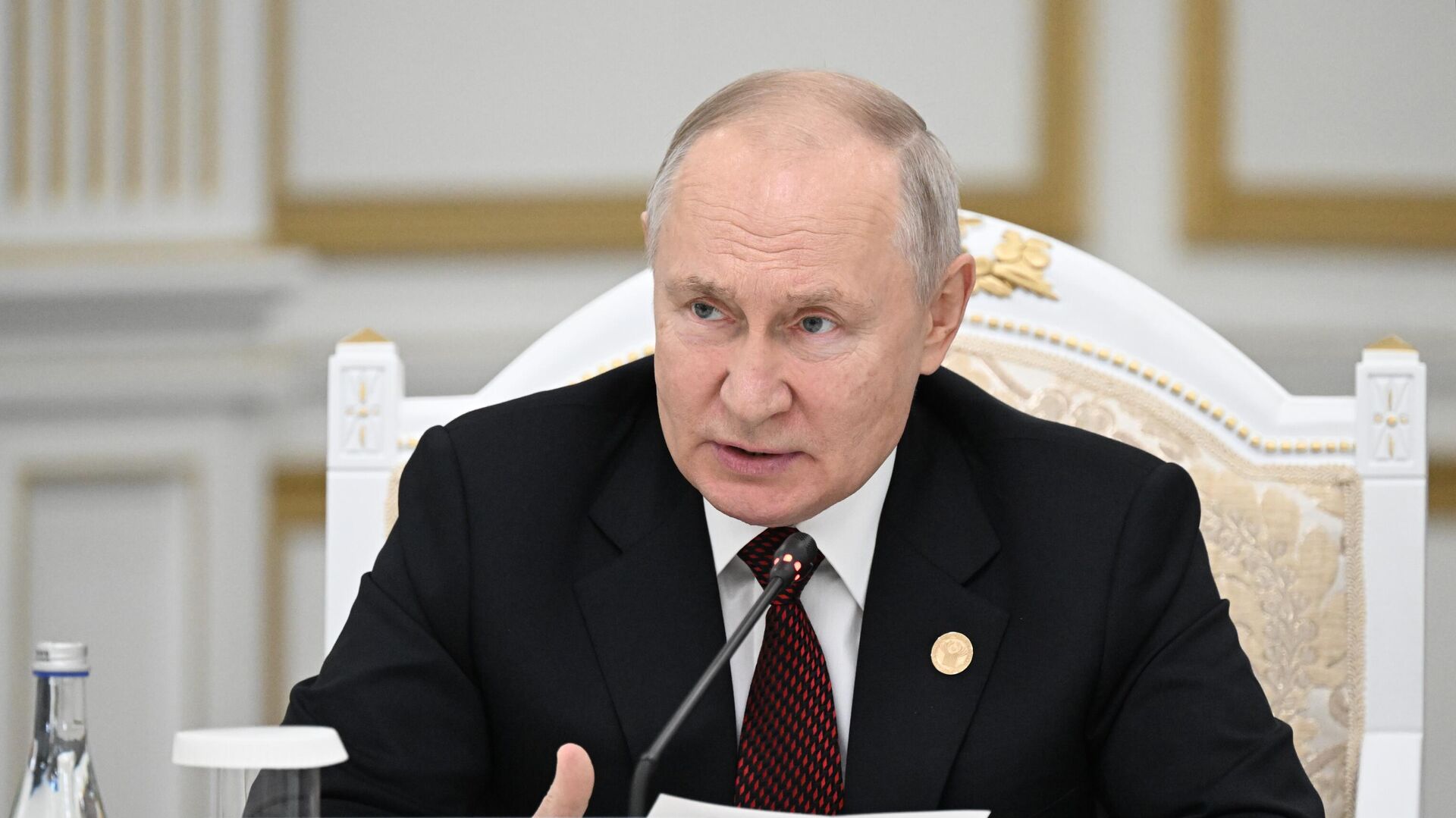https://sputnikglobe.com/20231102/vladimir-putin-signs-bill-revoking-ratification-of-ctbt-1114657904.html
Vladimir Putin Signs Bill Revoking Ratification of CTBT
Vladimir Putin Signs Bill Revoking Ratification of CTBT
Sputnik International
Moscow has previously made it clear that Russia's possible refusal to ratify the CTBT does not mean that it intends to conduct nuclear tests.
2023-11-02T09:17+0000
2023-11-02T09:17+0000
2023-11-02T10:05+0000
vladimir putin
russia
comprehensive nuclear-test-ban treaty (ctbt)
ratification
russia
response
us
https://cdn1.img.sputnikglobe.com/img/07e7/0a/0d/1114170740_0:0:3053:1717_1920x0_80_0_0_010080ecb861c2746d36f6353991cd87.jpg
Russian President Vladimir Putin has signed the bill to revoke the ratification of the Comprehensive Nuclear-Test-Ban Treaty (CTBT), according to the relevant document published on the official legal information portal on Thursday.Russian State Duma Speaker Vyacheslav Volodin later said the lower house would take up the issue at its next session in a mirror response to the US move.Kremlin spokesman Dmitry Peskov, for his part, told reporters at the time that Russia's possible refusal to ratify the CTBT "does not mean a declaration of intention to conduct nuclear tests.The document has not yet entered into force because eight countries have not ratified the treaty, including China, Egypt, India, Iran, Israel, North Korea, Pakistan and the United States.Withdrawal from the CTBT is possible only in the event of emergencies threatening the supreme interests of the Member State and upon six months' notice.
russia
Sputnik International
feedback@sputniknews.com
+74956456601
MIA „Rossiya Segodnya“
2023
Oleg Burunov
https://cdn1.img.sputnikglobe.com/img/07e4/09/0b/1080424846_0:0:2048:2048_100x100_80_0_0_3d7b461f8a98586fa3fe739930816aea.jpg
Oleg Burunov
https://cdn1.img.sputnikglobe.com/img/07e4/09/0b/1080424846_0:0:2048:2048_100x100_80_0_0_3d7b461f8a98586fa3fe739930816aea.jpg
News
en_EN
Sputnik International
feedback@sputniknews.com
+74956456601
MIA „Rossiya Segodnya“
Sputnik International
feedback@sputniknews.com
+74956456601
MIA „Rossiya Segodnya“
Oleg Burunov
https://cdn1.img.sputnikglobe.com/img/07e4/09/0b/1080424846_0:0:2048:2048_100x100_80_0_0_3d7b461f8a98586fa3fe739930816aea.jpg
ratification of the comprehensive nuclear-test-ban treaty, russian president vladimir putin's signing of a bill to to revoke the ratification of ctbt
ratification of the comprehensive nuclear-test-ban treaty, russian president vladimir putin's signing of a bill to to revoke the ratification of ctbt
Vladimir Putin Signs Bill Revoking Ratification of CTBT
09:17 GMT 02.11.2023 (Updated: 10:05 GMT 02.11.2023) Moscow has previously made it clear that Russia's possible refusal to ratify the CTBT does not mean that it intends to conduct nuclear tests.
Russian President Vladimir Putin has signed the bill to revoke the ratification of the
Comprehensive Nuclear-Test-Ban Treaty (CTBT), according to the relevant document published on the official legal information portal on Thursday.
The decision comes after Putin said during the plenary session of the Valdai Discussion Club in October that Moscow could mirror Washington's stance and withdraw the treaty's ratification from the lower house of parliament.
Russian State Duma Speaker Vyacheslav Volodin later said the lower house would take up the issue at its next session in a mirror response to the US move.
Kremlin spokesman Dmitry Peskov, for his part, told reporters at the time that Russia's possible refusal to ratify the CTBT "does not mean a declaration of intention to conduct nuclear tests.
The CTBT, adopted by the UN General Assembly in September 1996, prohibits all nuclear explosions, whether for military or peaceful purposes.
The document has not yet entered into force because eight countries have not ratified the treaty, including China, Egypt, India, Iran, Israel, North Korea, Pakistan and the United States.
Withdrawal from the CTBT is possible only in the event of emergencies threatening the supreme interests of the Member State and upon six months' notice.



